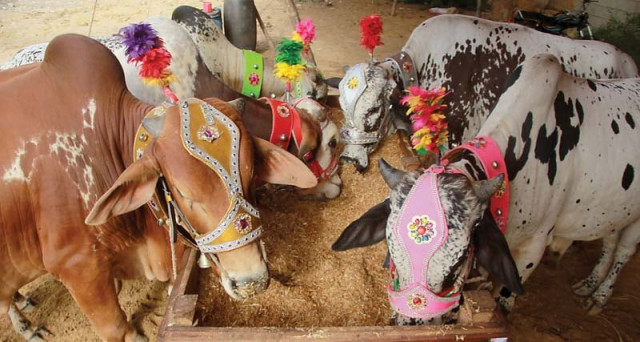SOPs outlined to avoid Congo fever risk on Eidul Azha
Thorough inspection of sacrificial animals advised before sending to the market

The Sindh Health Department has issued a letter to District Health Officers (DHOs), stressing the importance of preventive measures against Crimean-Congo hemorrhagic fever during the upcoming Eidul Azha. With the ongoing trade of sacrificial animals, the department has called for heightened vigilance and precautionary measures, particularly at sales points, while outlining other Standard Operating Procedures (SOPs).
According to the letter, Crimean-Congo hemorrhagic fever is asymptomatic in infected animals, necessitating proactive control and preventive measures. Close monitoring of animal movement, in collaboration with the district administration, is essential to address the situation effectively. The Sindh Health Department emphasises the need for communication between DHOs and the Animal Husbandry Department to ensure efficient monitoring and control.
The letter further advises thoroughly inspecting and decontaminating animals using pesticides to prevent infection. Animals can be treated at least 14 days before their distribution to sales centres. The potential risk of virus transmission between infected animals and humans should be carefully considered.
To minimise risks during the Eidul Azha, several precautions are recommended. Individuals are urged to avoid contact with the blood and remains of sacrificial animals and refrain from slaughtering animals at home. Dedicated and controlled areas should be designated for animal slaughter, and personnel involved in animal care and abattoir operations should receive proper training in animal care and correct slaughtering procedures.
Hand hygiene is paramount, and individuals are advised to wash their hands thoroughly. It is also recommended to use gloves and other protective clothing to minimise exposure to animal residues or bodily fluids. Regular inspection of cattle for pests is encouraged.
After slaughter, animals should be bled as soon as possible, and access to animal slaughtering premises should be restricted to rodents, insects, birds, and domestic animals. Safe practices should be followed to dispose of animal waste and blood, ensuring they are not discarded into rivers and waterways.
Published in The Express Tribune, May 26th, 2023.



















COMMENTS
Comments are moderated and generally will be posted if they are on-topic and not abusive.
For more information, please see our Comments FAQ